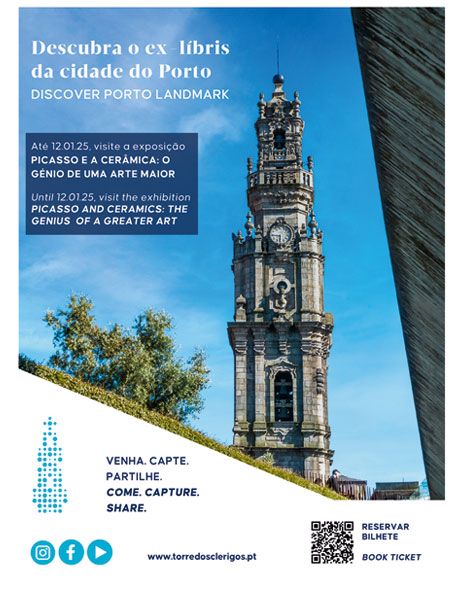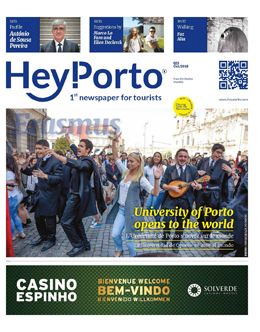“I live here, but Porto is not a place for me; it’s a feeling”
Agustina Bessa-Luís is one of the most emblematic women of Portuguese culture. With dozens of published works and a unique personality, she has an enormous passion for Porto.
She was born in Vila-Meã, Amarante, on October 15, 1922, but during her childhood and adolescence she lived in several cities, yet maintained a strong connection to the Douro region which was notorious in many of her work. Her maternal grandfather’s library allowed her the first contact with French and English literature, which influenced her.
During her adolescence, she even wrote novels under a pseudonym but it was in 1948 that she published the first book, “Mundo Fechado”. Three years earlier she had married Alberto Luís. She met her husband through an advertisement she published in a newspaper in which she sought a cultured person with whom to exchange correspondence, which clearly reveals her independent and determined temperament. In 1953, with the award-winning novel, “A Sibila” (The Sibyl), Agustina Bessa-Luís gained great recognition.
From then until the first years of the 21st century, she published dozens of works, some of them adapted to the cinema by Manoel de Oliveira. Although often dissatisfied with these adaptations, this collaboration was long and fruitful. Agustina even wrote the text that accompanies the film “Visita ou Memórias e Confissões”, made to be exhibited after the director’s death. The “Corte do Norte” was also adapted to the cinema by João Botelho and several works were adapted to the stage. In addition to novels, she also wrote plays, biographies, essays and children’s books. Between 1986 and 1987 she was director of the newspaper O Primeiro de Janeiro and between 1990 and 1993 she was in the board of the Teatro Nacional de D. Maria II.
She is a member of the Academie Européenne des Sciences, des Arts et des Lettres (Paris) and the Academia Brasileira de Letras and the Academia das Ciências de Lisboa. Among the honors received are the Order of Sant’Iago da Espada (1980), the Medal of Honor of the City of Porto (1988) and the Officier’s degree of the Ordre des Arts et des Lettres of the French Government (1989). Her work has been translated into German, Castilian, Danish, French, Greek, Italian and Romanian.
Undaunted, intelligent, sarcastic, and fearless in defying conventions and powers, Agustina Bessa-Luís was never afraid to say what she thought or let herself be intimidated for being a woman or of not belonging to the circles of power. For health reasons, she has been away from public and literary life for several years.








Comments are closed here.